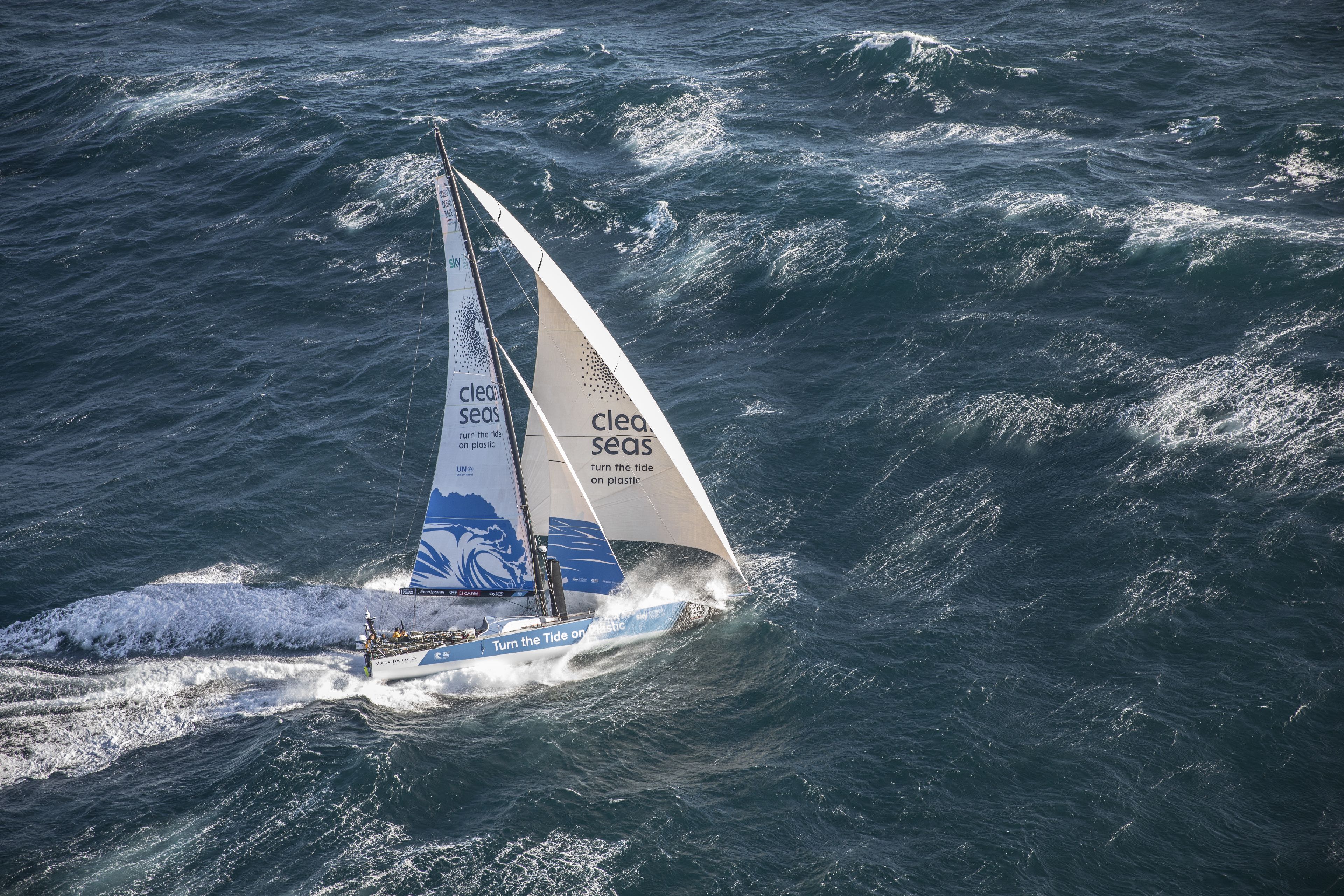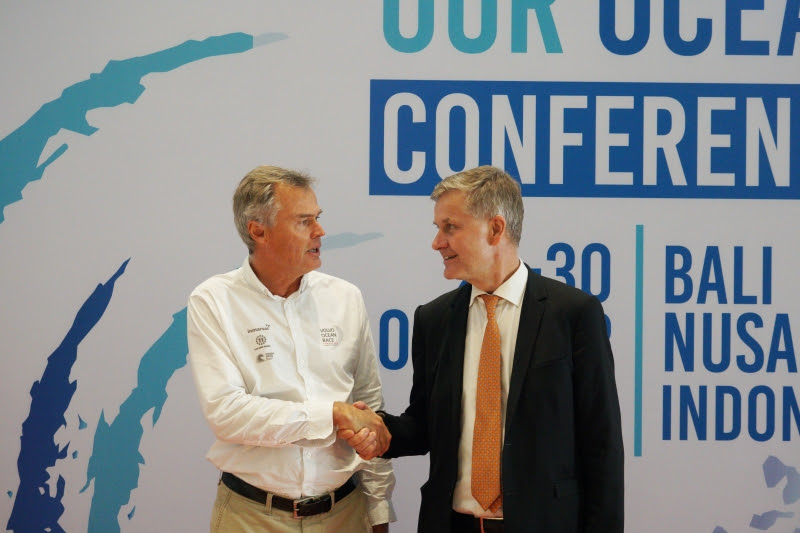
Volvo Ocean Race Sets Standards for Ocean Health Testing
A standardised system for analysing ocean health is being developed thanks to the sustainability program of sailing competition, Volvo Ocean Race and its extensive work to investigate the damage microplastics are having on the sea.
During the 2017/18 Volvo Ocean Race season, a scientific consortium working with the sailing competition found microplastics in 66 out of 68 samples collected in oceans throughout the world, with a staggering 349 particles per cubic metre discovered in a sample collected in the South China Sea.
Those samples will now be used to develop an “internationally standardised system” for sampling and analysing seawater, and will also be used to generate data on the link between plastics and human health. There is little information on the links between plastics and human health -- a knowledge gap the programme aims to solve with cutting edge technology that provides valuable data on the potential human effects.
Anne-Cecile Turner, Sustainability Programme Leader, stated: "By using the power of the sport of sailing we aim to showcase best practice and share our vision with politicians, businesses and the scientific community that ultimately accelerates positive change.”
The news coincides with the launch of the next phase of the global sailing race’s sustainability initiative which outlines a roadmap to inspire action and create tangible outcomes for ocean health.
Co-president Johan Salén revealed the set of commitments at the fifth Our Ocean conference in Bali, Indonesia last month which focussed on solutions to the key issues affecting our seas including marine pollution, marine protected areas, sustainable fisheries and climate-related impacts.

Over the next four years Volvo Ocean Race will deliver the Programme in collaboration with a broad range of stakeholders, including 11th Hour Racing and UN Environment.
Mr Salén said: “We will advocate for global solutions to the issues connected to marine plastic pollution, supported by institutions, governments, corporate partners and philanthropists.”
The Sustainability Programme will continue the vital work carried out during the last edition of the race by setting a high standard for the integration of sustainability within a high-profile sporting event. Starting next year, the race will feature a series of ten high level Ocean Summits and Innovation Workshops to engage with key influencers to explore industry-led solutions.
The international Sustainability Programme will run continuously through to the next edition of the race in 2021, ending in the summer of 2022.
Volvo Ocean Race won the 2018 Best Corporate Campaign or Initiative in Sport for Good at the Beyond Sport Global Awards for their "Clean Seas:#TurnTheTideOnPlastic" campaign.